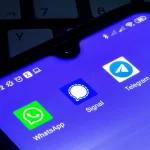A mobile app is developed to provide various services, functions, and features to users that generally cater to specific needs or interests. Mobile apps can be downloaded and installed from online app stores, such as the Apple App Store for iOS devices and Google Play Store for Android devices.
They are built for specific mobile operating systems, such as iOS (Apple’s operating system) or Android (Google’s operating system). They can be games, social networking platforms, productivity tools, communication tools, entertainment applications, e-commerce platforms, educational resources, and much more.
How do mobile apps are developed?
In mobile app development, it uses programming languages like Java or Kotlin for Android apps and Swift or Objective-C for iOS apps. Additionally, there are frameworks and technologies like React Native and Flutter that allow developers to create apps that can run on both iOS and Android platforms using a single codebase.
Overall, mobile apps have become an integral part of modern life, providing convenience, entertainment, and access to various services directly from mobile devices.
Where to use mobile apps?
Mobile apps can be used on a wide range of mobile devices, typically powered by operating systems, such as:
- iOS (Apple’s operating system)
- Android (Google’s operating system)
Mobile apps are specifically designed to run on these operating systems and provide users with various functionalities and services.
Here are some places where mobile apps can be used:
- Personal use. Mobile apps can be used by people for personal purposes, such as:
- social networking
- communication
- entertainment
- gaming
- fitness tracking
- photography
- shopping
- personal finance management
- Business use. Many businesses develop mobile apps to provide services, engage with customers, and facilitate transactions. These apps can include e-commerce platforms, banking and finance apps, productivity tools, customer support portals, project management tools, and more.
- Education. Mobile apps are used in the education sector for learning purposes. They can provide educational resources, interactive lessons, language learning tools, exam preparation materials, and online courses.
- Travel and navigation. Apps like Google Maps, Waze, and TripAdvisor help users navigate, find directions, discover nearby places of interest, and book accommodations or transportation.
- Health and fitnes Mobile apps in this category offer features such as exercise tracking, diet monitoring, meditation guides, sleep analysis, and access to health-related information.
- Entertainment. Mobile apps provide access to various forms of entertainment, including streaming services for music and videos, gaming apps, social media apps, and apps for reading books, magazines, or comics.
- Utilities. Mobile apps offer utilities like weather forecasts, calendar management, note-taking, file storage, language translation, barcode scanning, and more.
- Social networking. Apps like Facebook, Instagram, Twitter, LinkedIn, and Snapchat allow users to connect and interact with others, share updates, photos, and videos, and stay updated on current trends.
Mobile apps can cater to numerous industries, interests, and user needs, making them incredibly versatile and widely used across different contexts.









